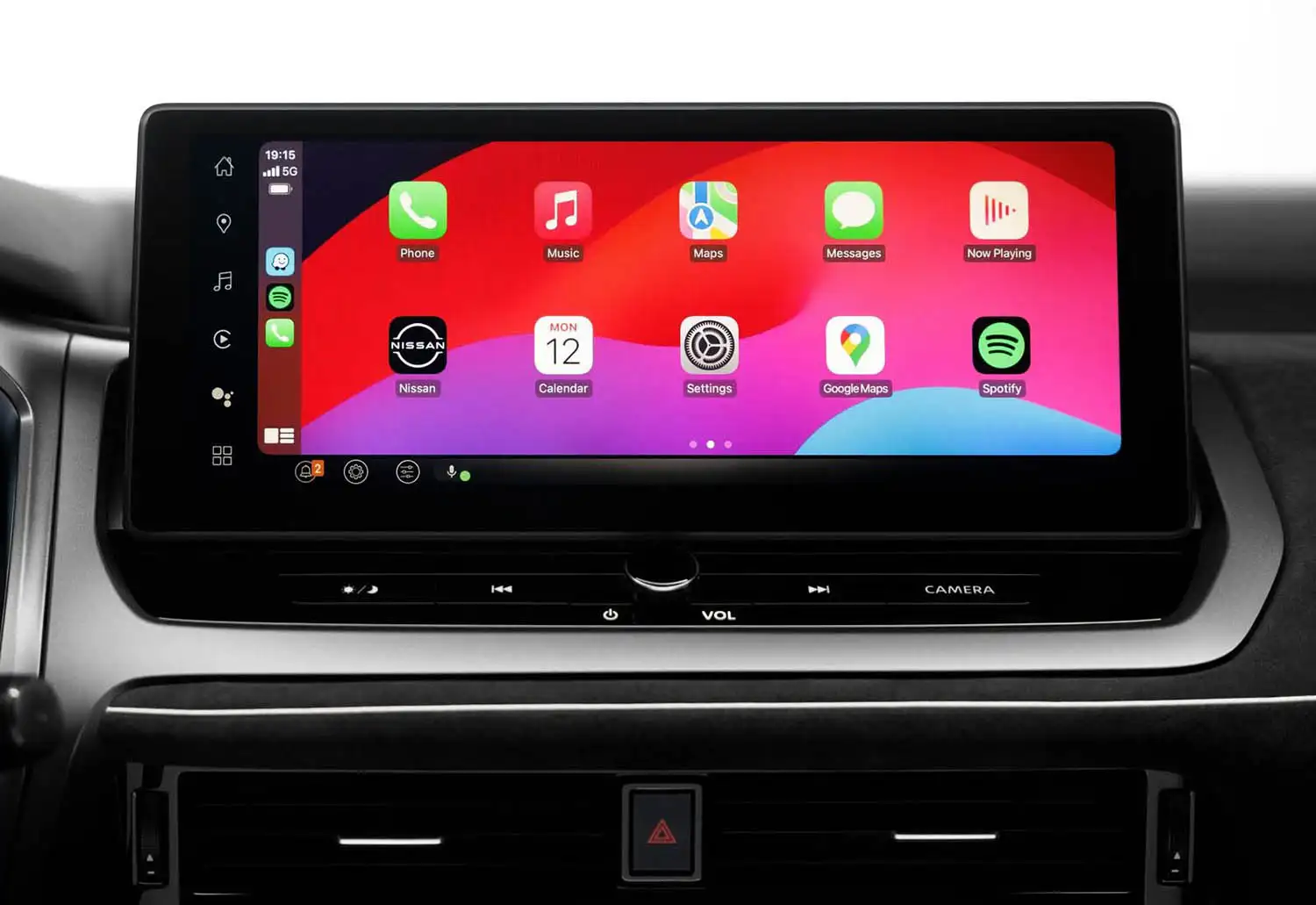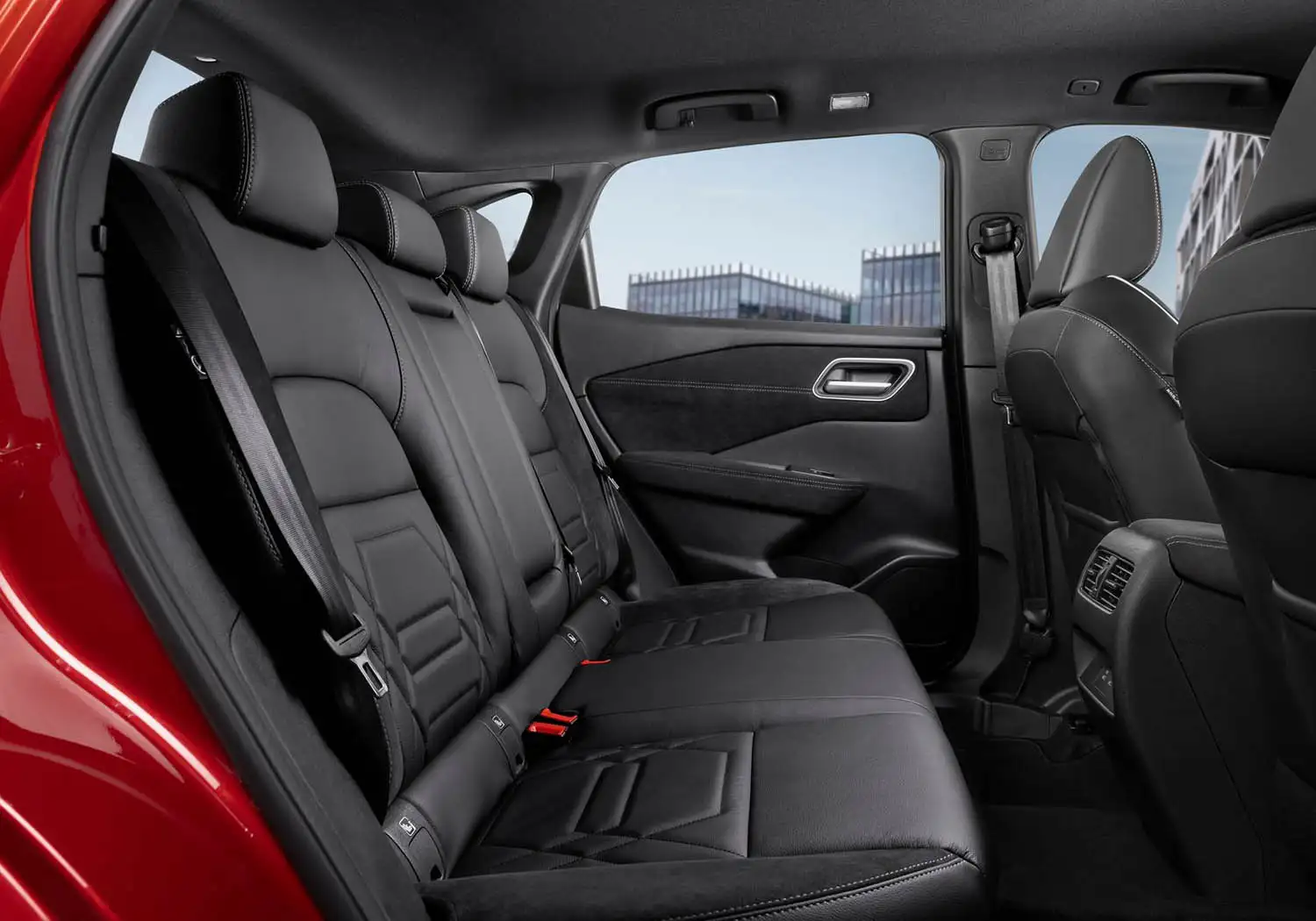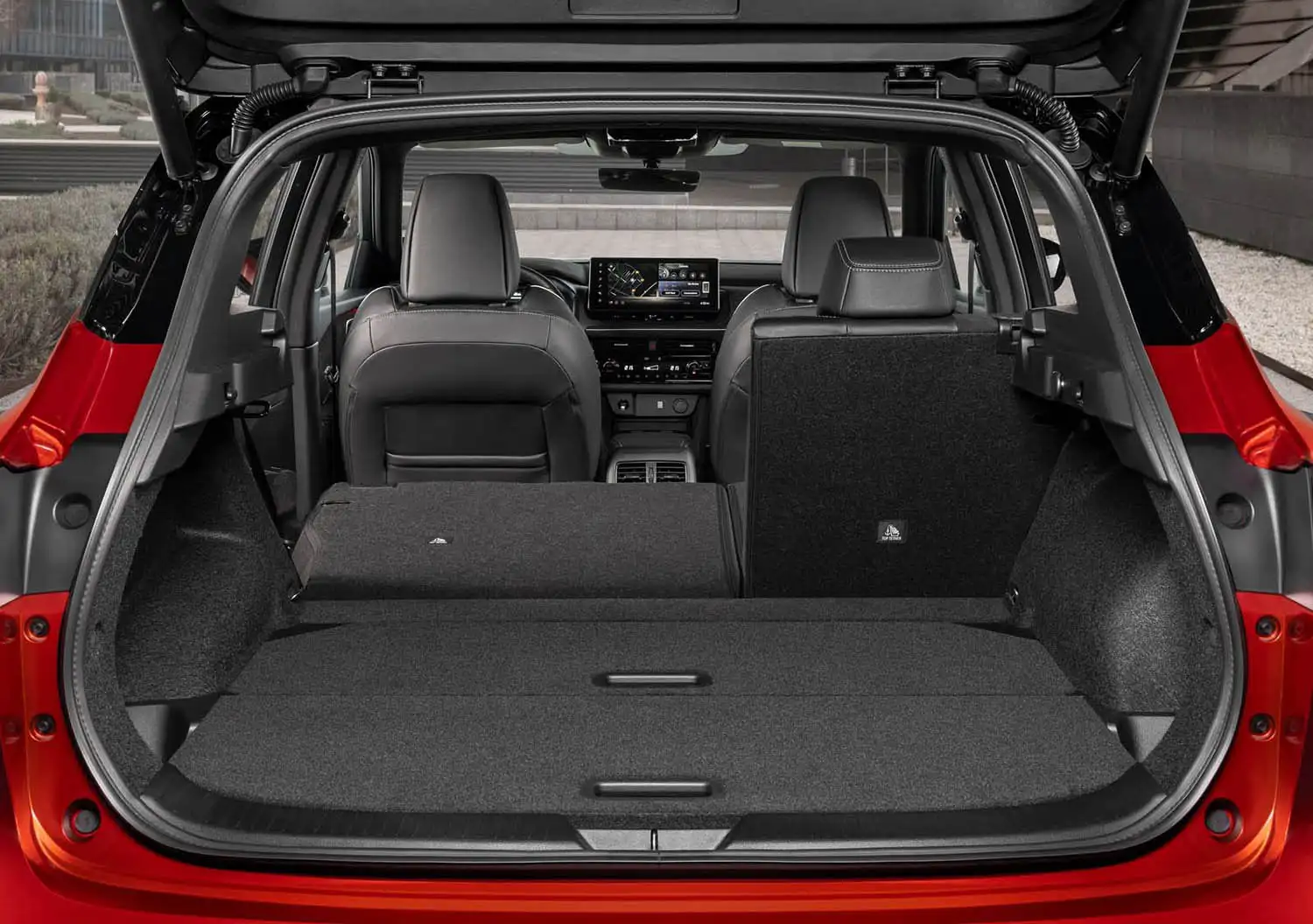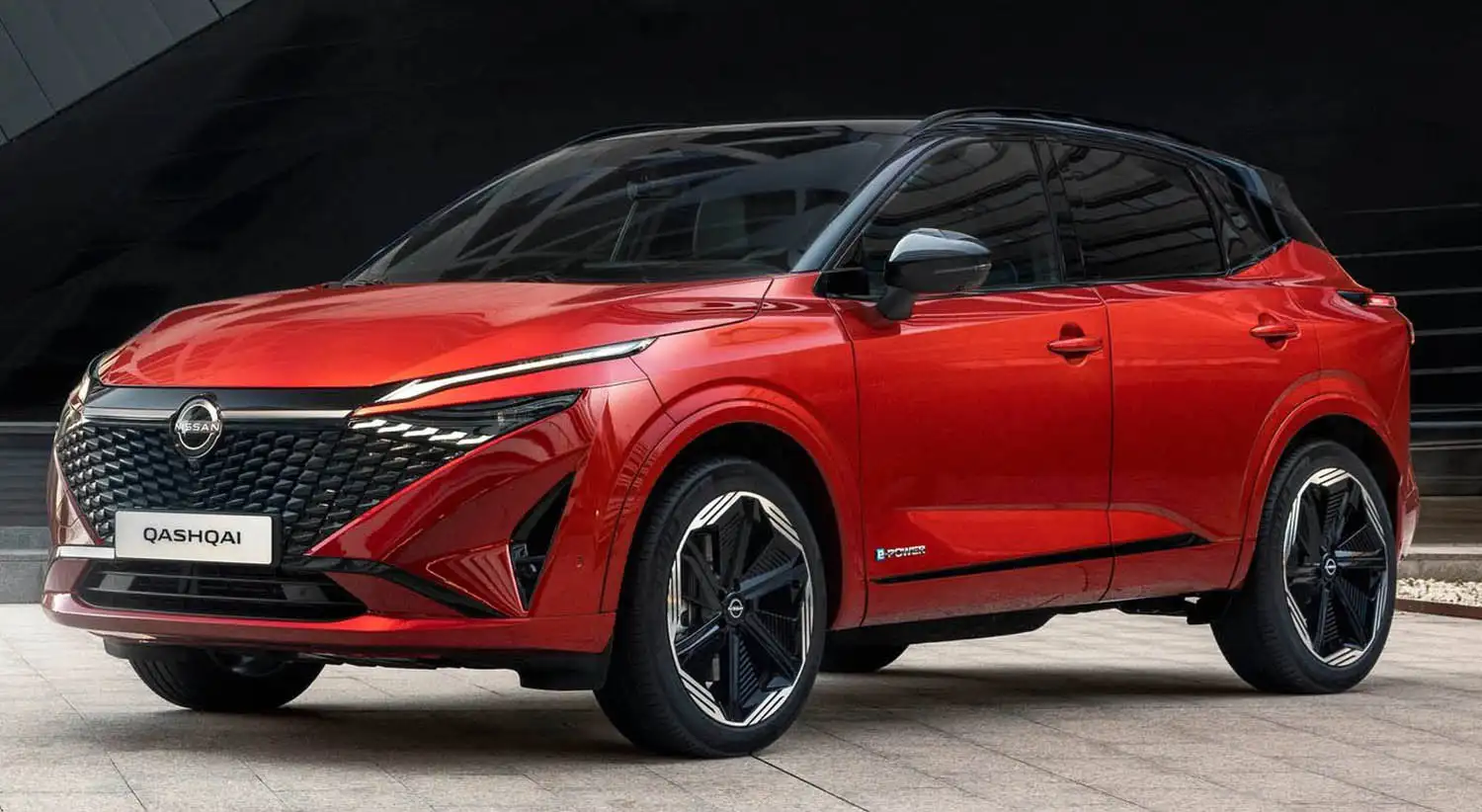
Nothing stands still for long in the highly competitive crossover segment that Nissan pioneered with the original Qashqai. In the three-and-a-bit years since the third generation Qashqai was launched, it has sold more than 350,000 units in Europe and continues to set the standard for crossovers – the pioneer and still the benchmark. And to maintain its place as the reference in its segment, it has received a comprehensive aesthetic refresh, as well as significant technology updates.
From the bold changes to the exterior styling, to the comprehensive updates to the infotainment and connected services on-board, the philosophy behind the changes to Qashqai is to keep the essence of what consumers love about the car, enhance its strengths and to add even more intuitive and convenient technology.
Exterior updates – a bold, distinctive and sporty look
The new Qashqai exudes a sharp and modern dynamism thanks to its refreshed design.
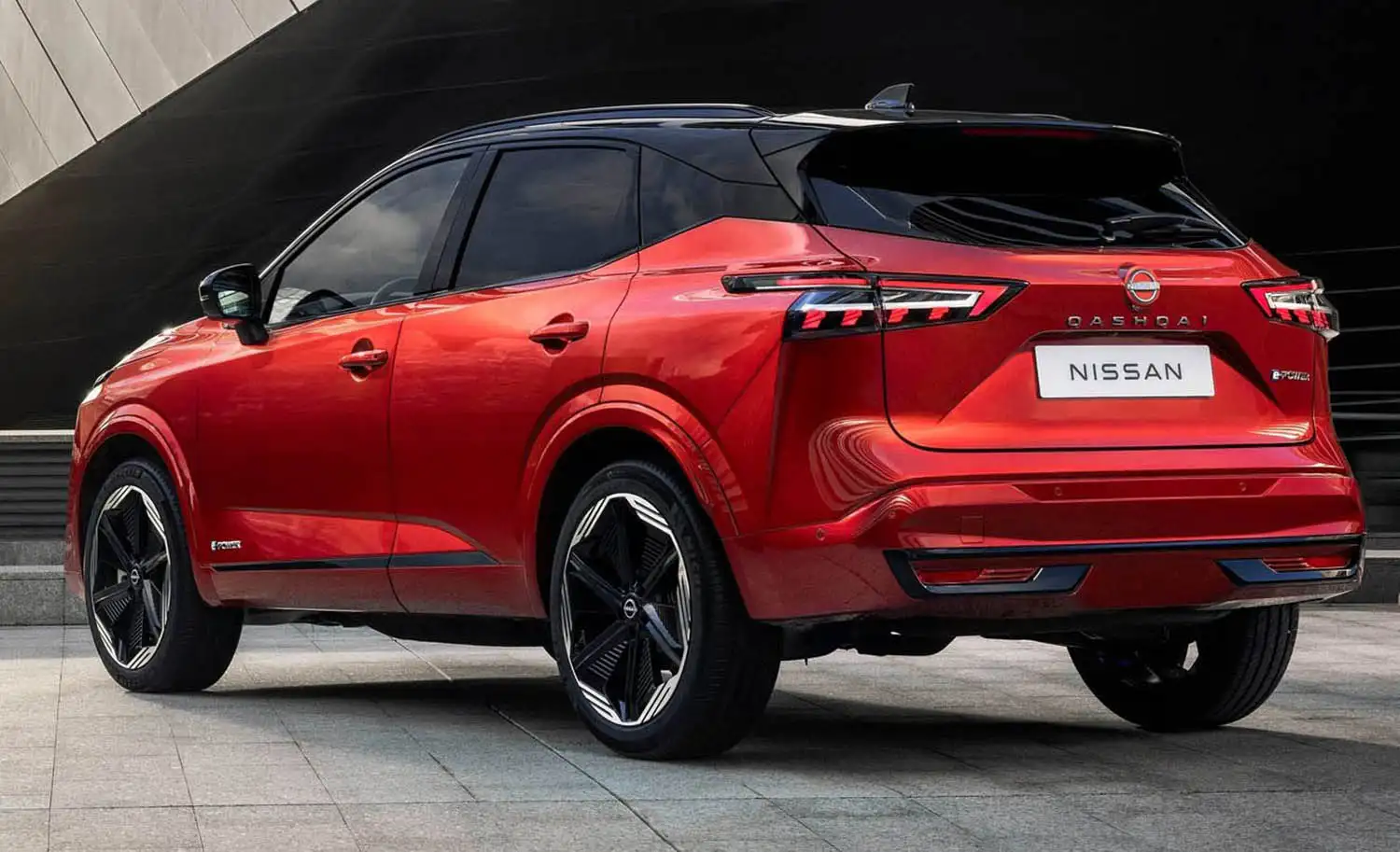
The front grille of the Nissan Qashqai has been comprehensively updated to create a more striking first impression. Inspired by the patterns of ancient Japanese armour scales, it now consists of dozens of high gloss, three dimensional comma-shaped elements painted in high gloss black paint which appear to float in the space between the lip of the bonnet and the numberplate holder. To the sides of the central portion, the “commas” form a triangular shape from the new headlights down to a point to the side of the numberplate and they are finished in a “satin chrome” hot foil stamp, on the top grade version.
The flanks of the bumper are body-coloured and a strip of black in a high-gloss finish runs below the numberplate to the lower corners of the bumper. Underneath the cooling aperture, there is a thin body-coloured “chin strap” which gives a sense of definition to the front.
The new headlights bring a sense of purpose and presence, with an even sharper look. It now features an adaptive high beam module complemented by a smaller unit for wider beam distribution, useful for increased visibility in low-light conditions and fog. Below the main lens the daytime running lights consist of five small lenses which are the same shape as the “commas” of the main grille. The daytime running lights now encircle the main headlight lens, joining with the thin light above the headlight which is similar to the unit on the previous iteration of Qashqai, but it now has an illuminated “Nissan” on its outboard edge. The upper daytime running light element becomes the turn indicator when activated and, for the first time, features sequential turning lights (according to the grade).
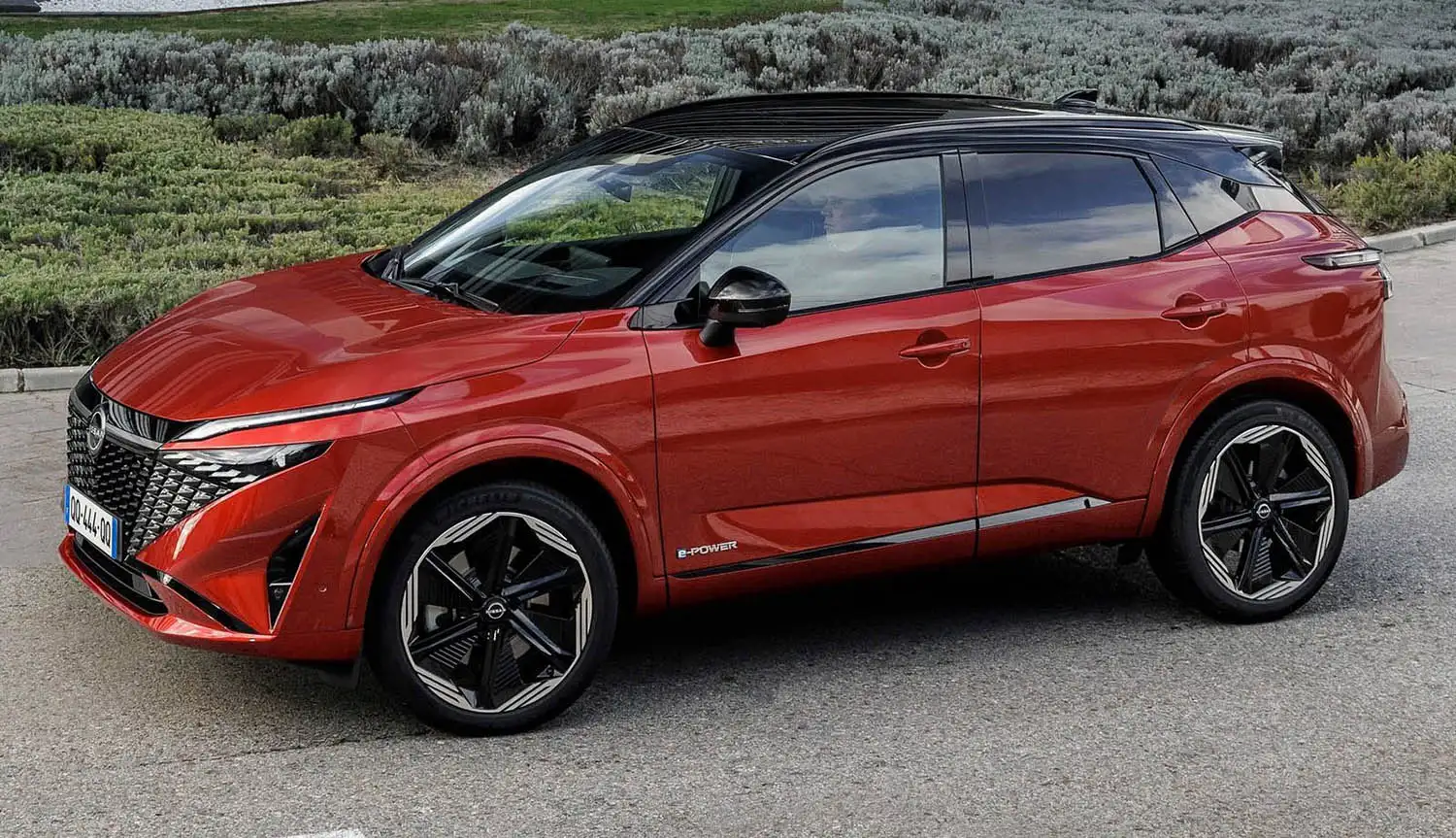
At the rear, the shape of the lights remains unchanged but the composition of the lights within the unit has been redesigned. The red lighting elements now consist of four individual elements which echo the shape of the front grille “commas”. They appear to float in the lens housing and are now a distinctive shade of red, known as “super red”, and bring a sense of elevated precision. The lenses are now clear, to allow a better view of the lighting elements. The thin boomerang lighting element that frames the upper side of the light unit continues through the taillight and now features the dynamic indicator signal.
The bumper has been reshaped and now features harmonized colour – either gloss black on the higher grade versions or body coloured on the new N-Design grade.
Likewise, when viewed in profile, the updated Qashqai on the higher grades benefits from a new gloss black finish on the body beneath the doors and wheel arches.
A new 18″ diamond cut alloy wheel is now standard on the mid-grade Qashqai. For the higher grades, there is a new 19″ alloy and a new 20″ diamond-cut alloy wheel design. This range of striking wheels gives one of the widest range of wheels in the segment, adding an extra dimension to the Qashqai’s eye-catching design refresh.
Three new colours have been added to the Qashqai’s palette. Pearl White is new and features a cleaner, pure tint that appears to give a glow in certain lighting conditions. Pearl Black replaces the previous black option and has a richer black tint and has the effect of sharpening the definition of the Qashqai’s visual geometry.
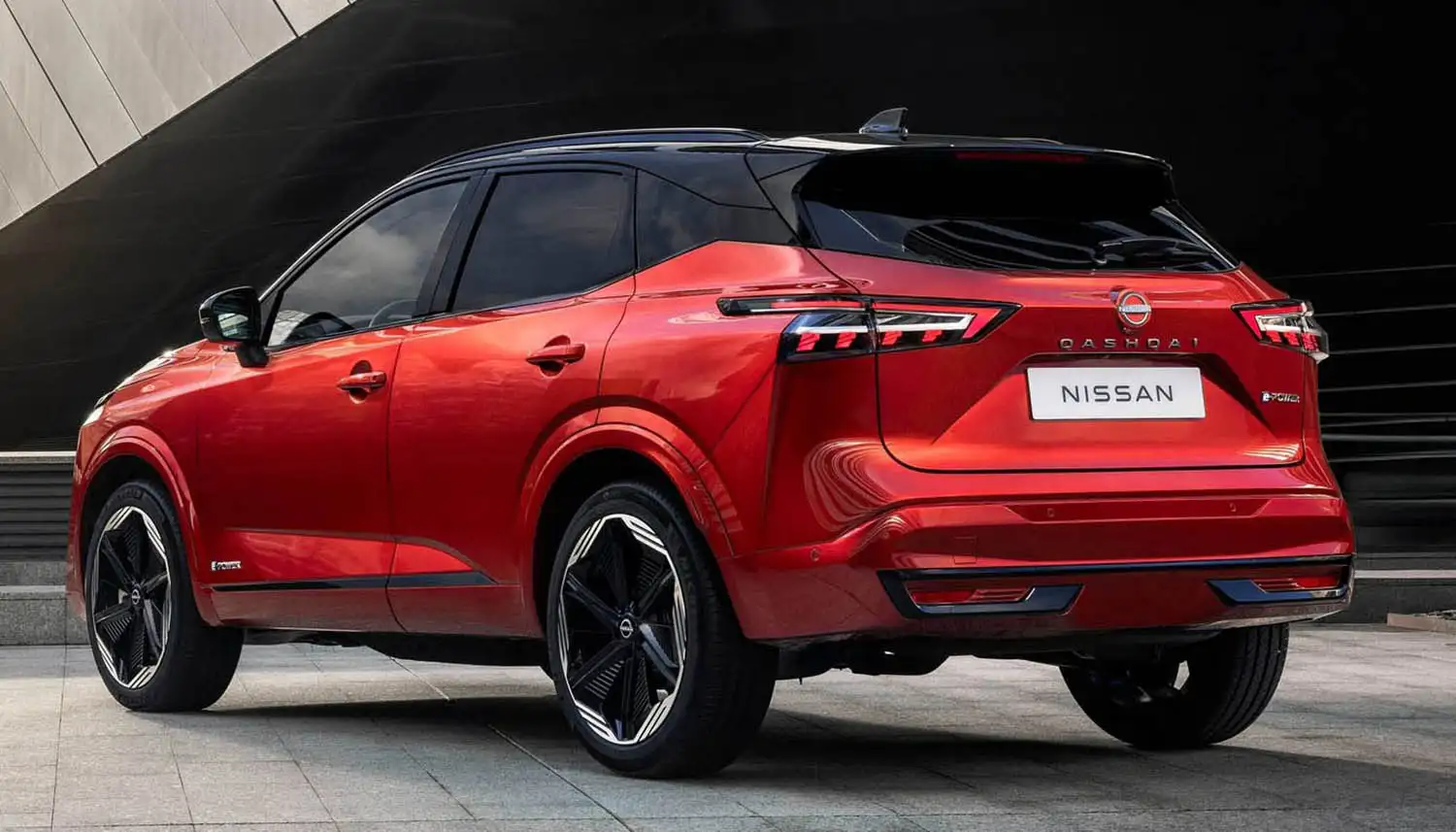
Deep Ocean is an eye-catching shade. It appears to sit somewhere between dark blue and metallic teal depending on the prevailing light conditions. It’s sure to spark the conversation among passers-by whose eye has been caught: “is that Qashqai blue or maybe green?”.
Five of the Qashqai colours – Pearl White, Deep Ocean, Fuji Red, Magnetic Blue and Ceramic Grey – are all available in two-tone, with a black roof for a more distinctive look.
New N-Design grade
A new addition to the Qashqai line-up is the N-Design grade. Conceived to appeal to Nissan Qashqai customers who’d like their version to be particularly bold, it features unique aesthetic touches. On the exterior, the lower body portion below the doors and the wheel arches are body-coloured on N-Design. There are also unique, all-new 20″ alloy wheels which bring added on-road presence.
Upscaled interior trim
Once potential or existing Nissan Qashqai customers have had their interest piqued by the refreshed exterior, that curiosity will be ened once they immerse themselves in the revised interior.
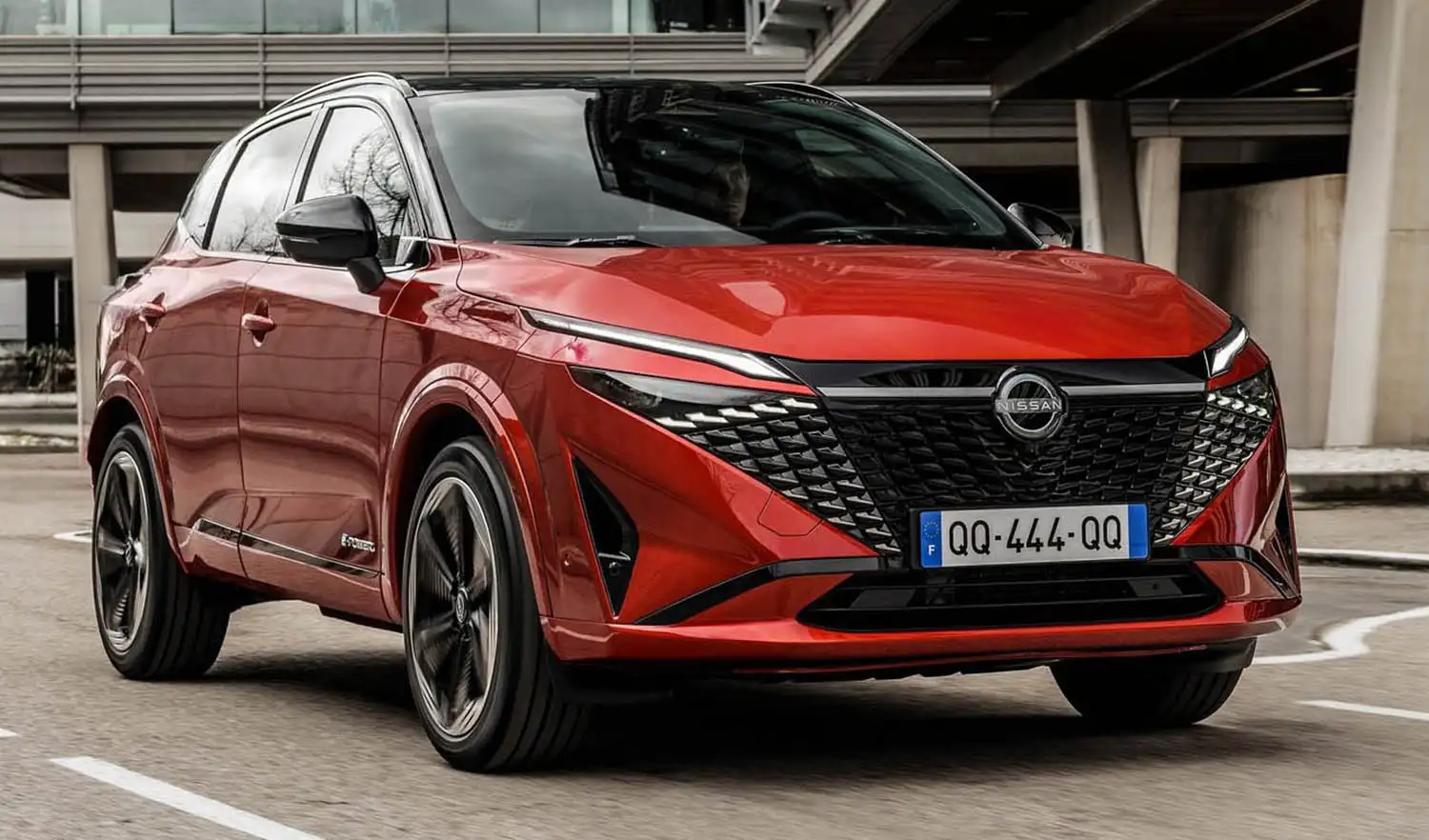
For the upper grades, there is a new application of Alcantara® on the dashboard, door inserts, door armrests, centre storage console lid and even the knee pads all combine to elevate the on-board ambience.
New patterned materials adorn the centre console around the gear selector and the decoration insert between the upper dashboard and glovebox, underlining the attention to detail which underpins Japanese craftsmanship.
Updated seat trims have been introduced across the upper three grades of Qashqai for an even more premium feel. Most notable is the black partially quilted premium leather on the top spec Qashqai. On the penultimate grade, there’s a quilted synthetic leather which is complemented by “burnt umber” flashes on the seat base and shoulders of the seat upright.
The seats on the N-Design grade feature black leather with quilting, and Alcantara® inserts, while specific embossed “Qashqai” wordmark adorns the section just below the headrest.
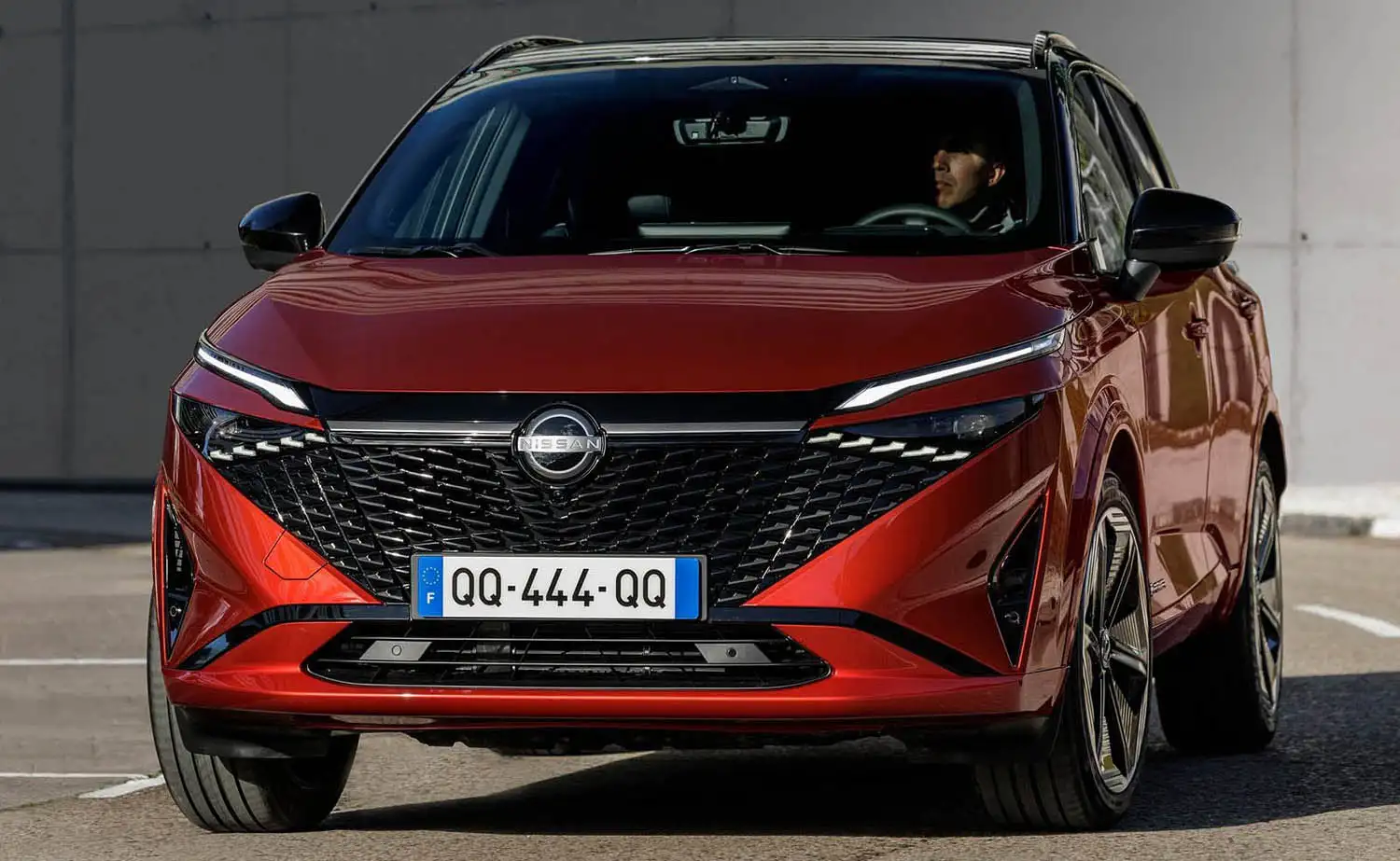
Another new dimension to the elevated life-on-board feeling is the addition of ambient lighting on the N-Connecta, N-Design grades and above. Advanced red/green/blue LEDs discreetly located to allow the driver (or passenger) to personalise the interior lighting according to their own mood. On the two top grades, the LEDs are also located in the rear so all occupants can enjoy the effect. The ambient lighting settings can be controlled via the central infotainment screen.
“The new face of Qashqai has a more technical appearance, with more texture and eye-catching detailing. We were inspired by traditional Japanese battle costumes which combines craftsmanship with muscularity. We’ve worked hard with our colleagues on the front and rear lighting, giving a technical and precise impression which integrates seamlessly. Inside, the new materials and ambient lighting elevate the on-board experience even further. Overall, we’re convinced crossover-buyers will love the results,” said Matthew Weaver, Vice President, Nissan Design Europe.
Upgraded technology
The pace of progress in the automotive world now goes hand-in-hand with the progress in the areas of digital and processing technology. And in this area, the updated Qashqai has harnessed that progress to make the daily driving experience even more intuitive and reassuring.
Around View Monitor [AVM] is one of the most commonly used features on the Qashqai and has been significantly upgraded. This is a signature Nissan technology which dates back to 2007.
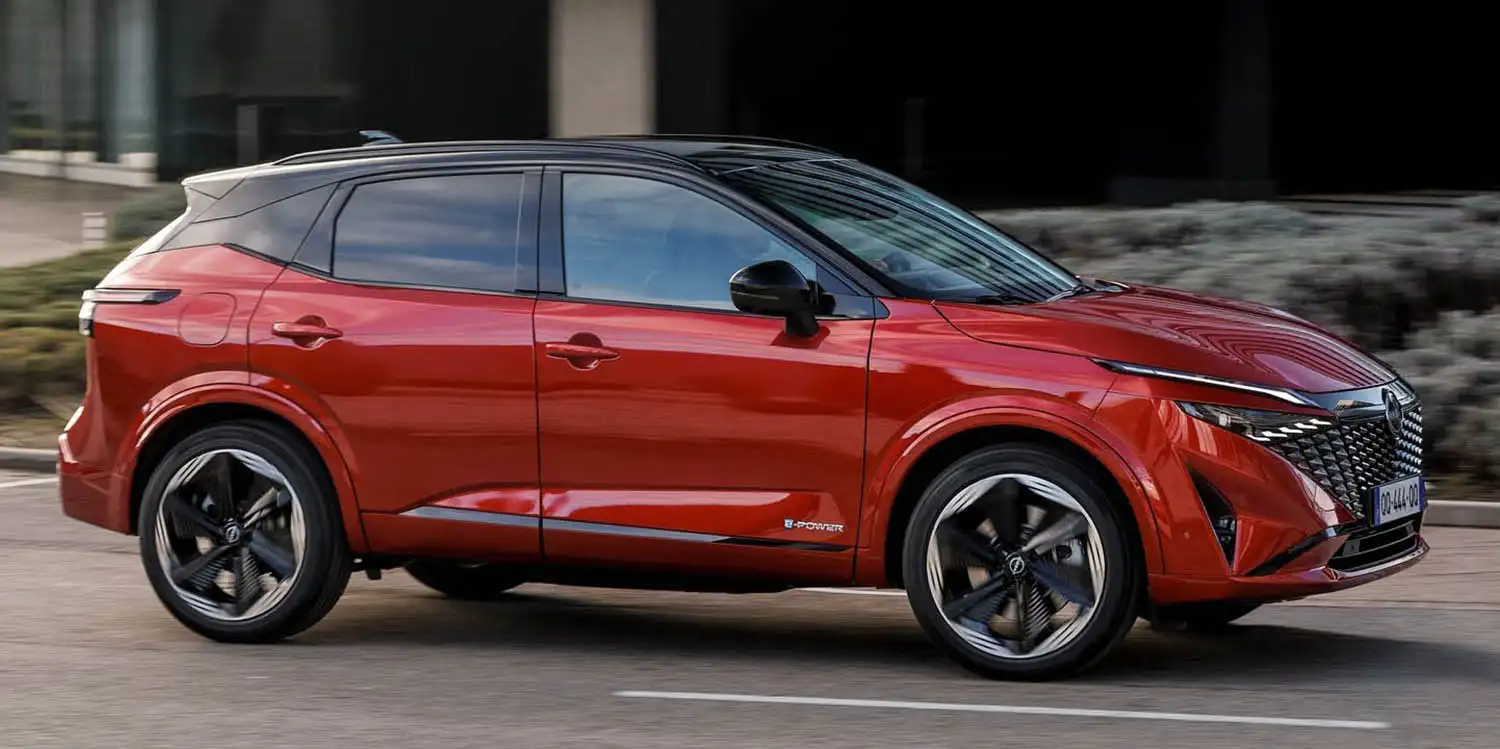
When reverse is selected, the view of four external cameras is combined to give a birds-eye view of the vehicle to allow parking manoeuvres with maximum confidence. The newly upgraded AVM tech employs four cameras to deliver super clear view in all light conditions.
The upgraded AVM system now features a 3D function allowing the driver to see the car not only from above, but also select one of eight different external camera view points to visualise the car from the front, rear, sides or corners to potentially identify any unseen exterior hazards. It works in tandem with Nissan’s Moving Object Detection system, which sounds an alert when it perceives a moving object in the proximity of the Qashqai.
Additionally, a feature known as “invisible hood view” allows the driver to see the position of the front wheels as if looking at them from just behind, which enables them to precisely manoeuvre in tight locations, such as multi-story car parks where there are concrete curbs which would damage a wheel. This view uses machine learning to create the image based on what the front camera can see in front, with the wheels super-imposed into the view to give a sense of perspective.
Another new smart AVM feature is “Parking Spot Location Memory” which allows the Qashqai driver to save frequently visited parking locations so the car will automatically recognise the location using GPS. When this happens, the car will remember the precise position to allow perfect parking each time – particularly useful when the available space is a tight fit.
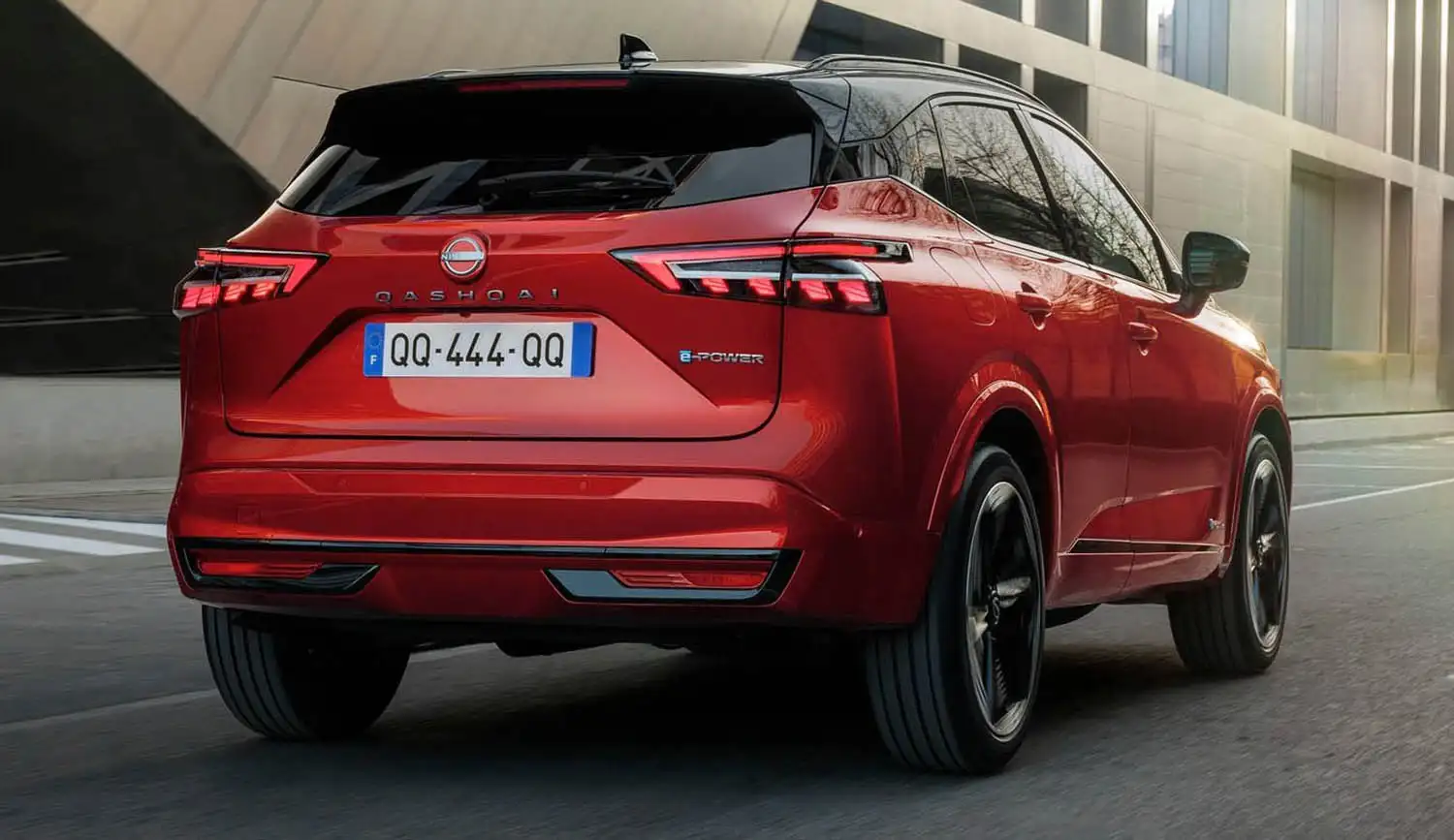
Furthermore, the AVM tech can be used to help drivers make a safe entry from a difficult exit onto a road where visibility is limited. It uses a wide-angle front camera to show the view from the front of the bonnet, projected onto the central screen. Like the “Parking Spot Location Memory” function, locations with limited visibility can be stored in AVM’s GPS memory, so it will automatically activate close to the junction.
Some design changes have been made to the visuals that are displayed on the TFT driver information screen behind the steering wheel. The design of the dials on display changes to red in Sport mode, to green in Eco mode or to pale grey in standard mode – in both “normal” or “enhanced” view mode.
There is now a “minimal” mode which reduces the potential distraction for drivers by displaying only the selected gear, drive mode and speed. For e-POWER equipped Qashqai’s, the energy flow display is now available in “normal” view mode.
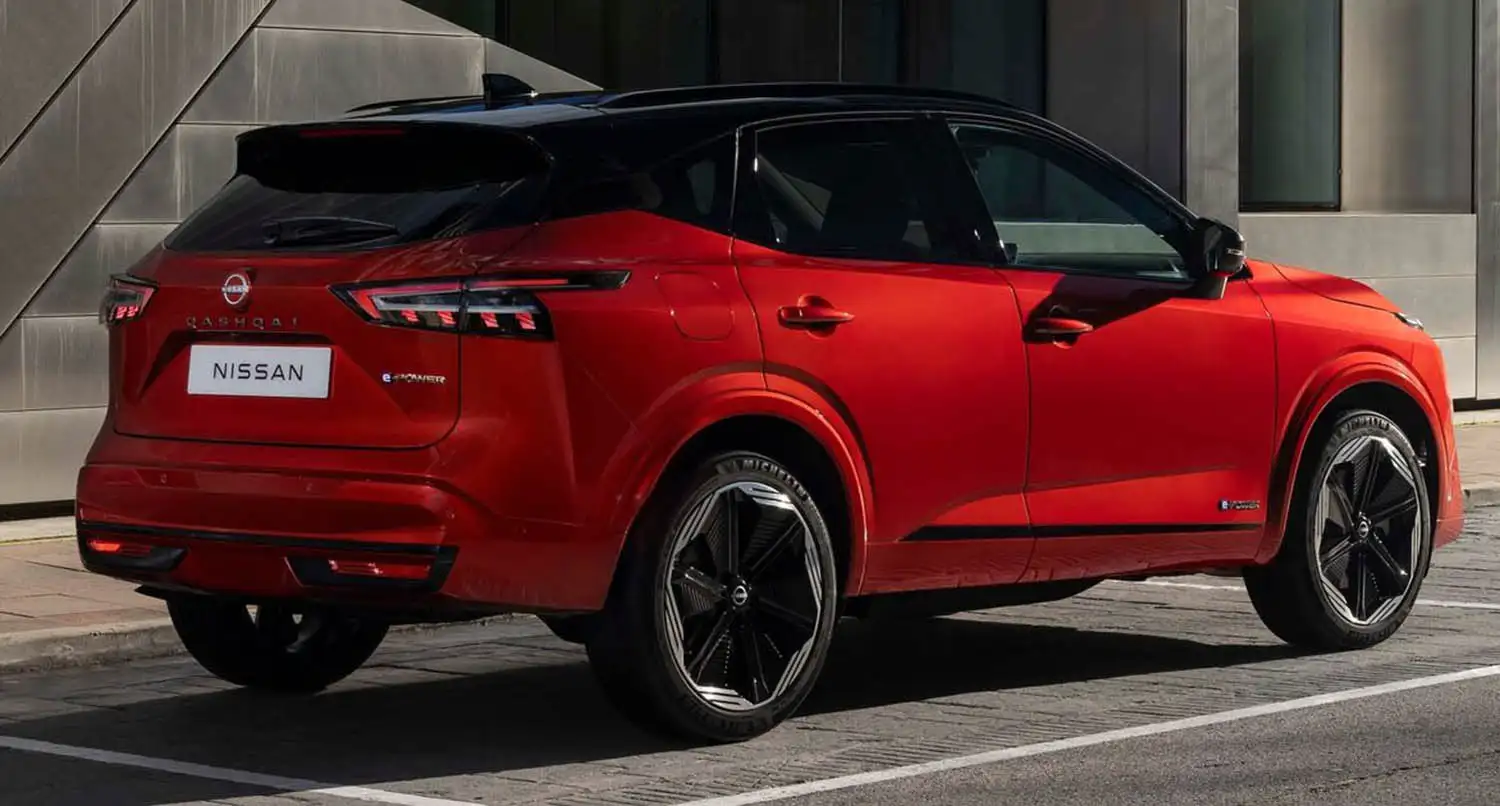
“The updated Qashqai has benefitted from a comprehensive series of technological upgrades. From the next generation of around view monitor, which will prove useful for our customers every day, to the introduction of Google’s built-in, which makes the Qashqai part of our customers’ digital life seamlessly. At the heart of Nissan’s commitment to innovation is an intuitive user-experience and true convenience. The updated Qashqai epitomises those priorities,” said David Moss, Senior Vice President, Region (Africa, Middle East, India, Europe & Oceania) Research & Development.
Updated advanced driver assistance systems
The suite of driver assistance systems has been significantly upgraded to provide improved vigilance and intervention, for maximum peace of mind.
Firstly, the Autonomous Emergency Braking functions have been recalibrated to sharpen its risk detection and to react more quickly in case of possible collision. This applies to Front Emergency Brake, Pedestrian Front Emergency Brake, Front Emergency Brake Cyclist, and Intelligent Emergency Brake functions.
In the case of emergency braking, the Emergency Stop Signal will be activated. This triggers the flashing of the rear brake lights to catch the attention of vehicles behind. It activates when a sudden brake pressure is applied at above 60km/h.
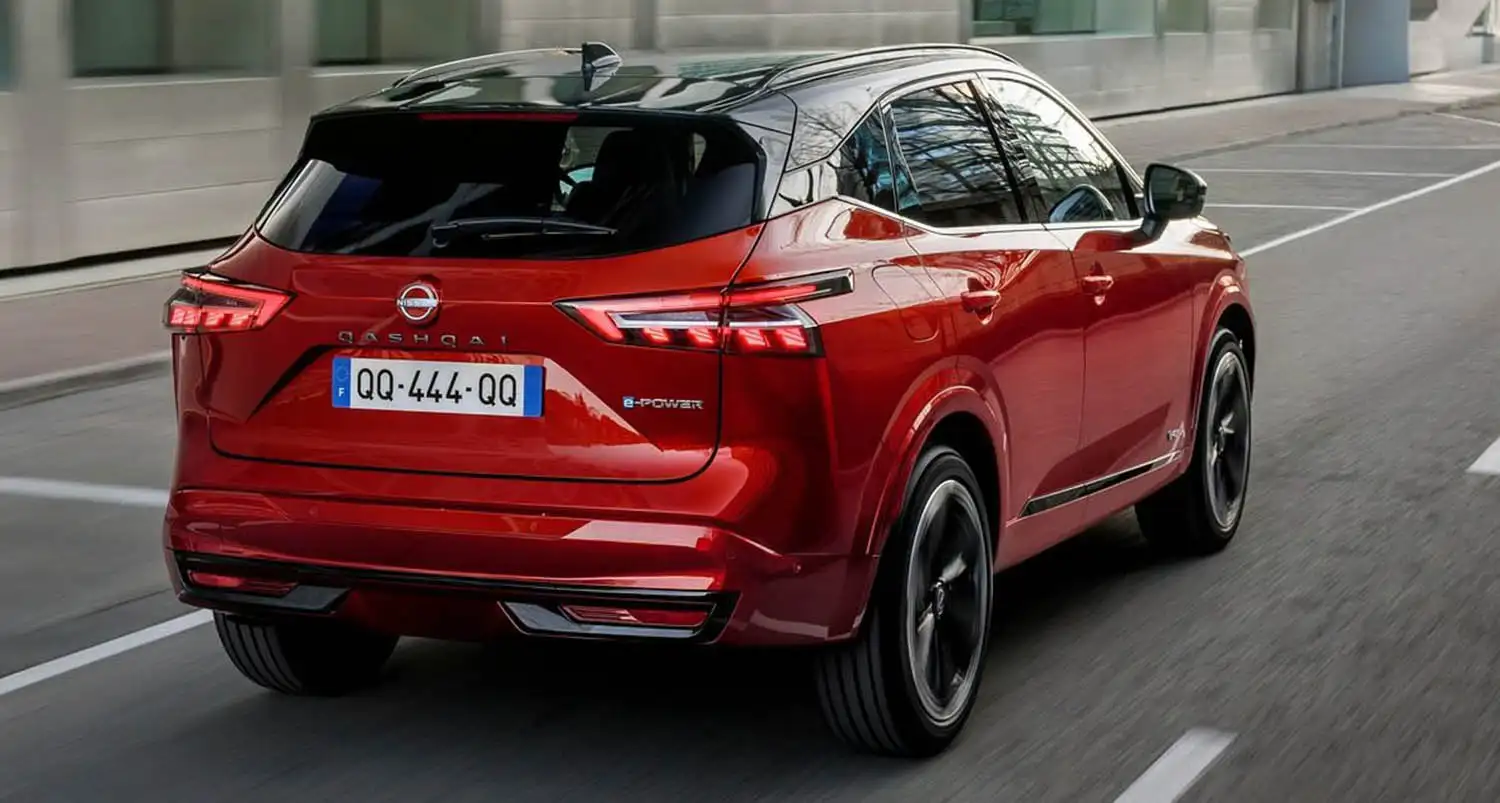
The Emergency Lane Keep System is now automatically activated on starting the Qashqai. It triggers the operation of both Lane Departure Warning and Lane Departure Prevention systems at speeds above 60km/h. It consists of a haptic warning via a vibration through the steering wheel when the system detects the car is too close to either the central lines or the side of the road.
The Intelligent Speed Assistance system which helps the driver to adapt the vehicle system to the prevailing speed limit by using both a camera to read speed limit road signs as well as GPS data has been upgraded. A flashing icon already catches the driver’s attention when they are above the speed limit, and it will now sound an alarm if they don’t reduce their speed.
New for the upgraded Qashqai is the quick and simple Driver Assist Custom Mode, which allows drivers to quickly tailor the precise level of intervention from the different assistance technologies according to their preferences. This can take place via a two-step process using the shortcut menu button on the left spoke of the steering wheel and the “Ok” button.
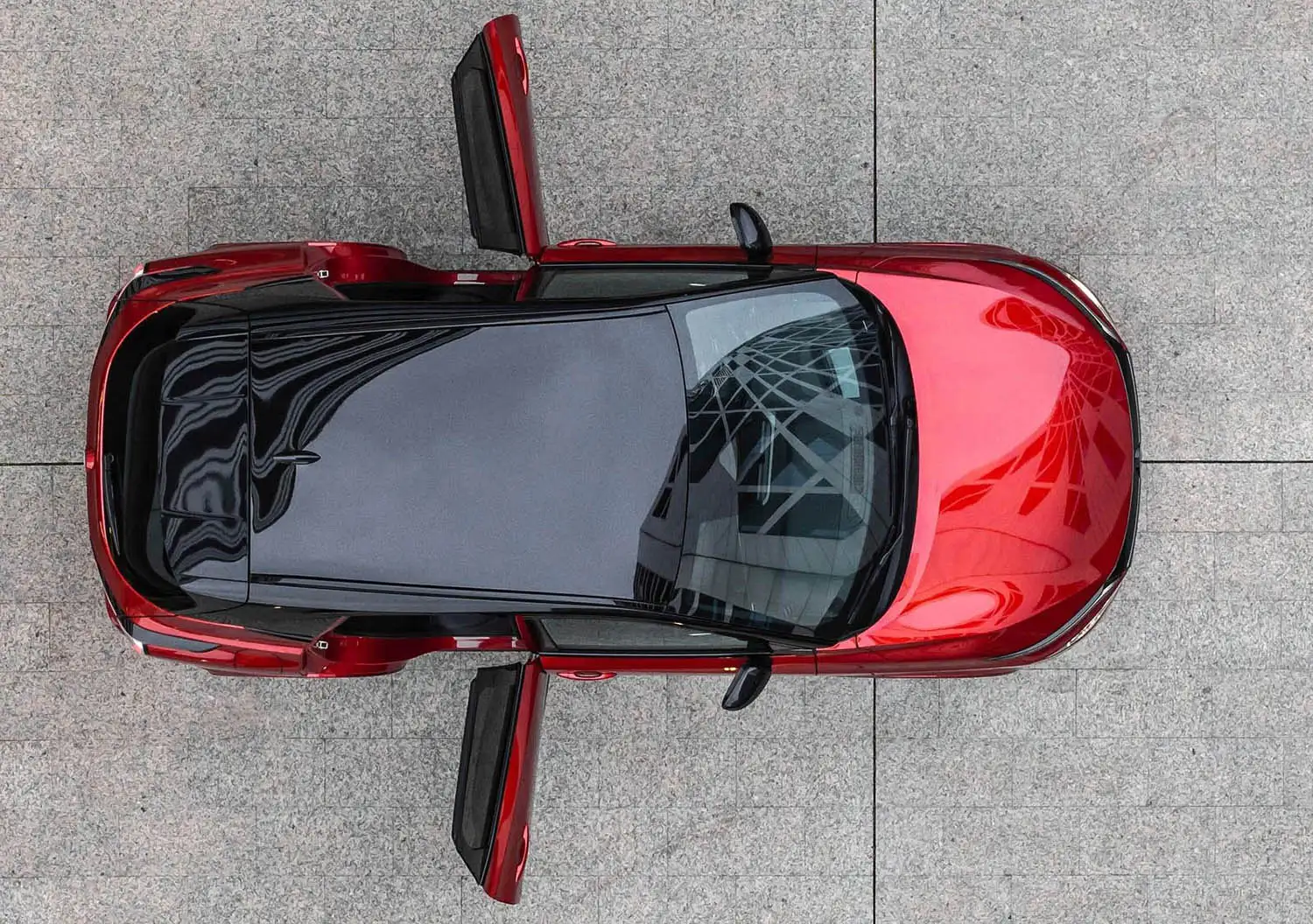
Google built-in
The refreshed Qashqai is the first vehicle in Nissan’s European range with Google built-in as part of the Nissan Connect infotainment system, which makes a near-seamless interaction between a customer’s digital life and their vehicle.
The updated Nissan Qashqai comes as standard with Google Maps and, once signed-in, with a personal Google Account drivers can access their favourite locations and points of interest. This reduces the dependence on a mobile phone and cellular phone network. Over the air updates ensure the map information is always current.
Google Assistant allows the driver to use their voice for hands-free help on the go. For example, drivers can say “Hey Google” to control the vehicle’s ventilation system, heated seats and windscreen or to navigate to their next destination. Additionally, drivers can make phone calls and listen to audio instructions without taking their eyes off the road.
Drivers also gain access to an ecosystem of apps that are available for download on Google Play. They can conveniently listen to their favourite music, podcasts, audiobooks, and more directly from their vehicle.
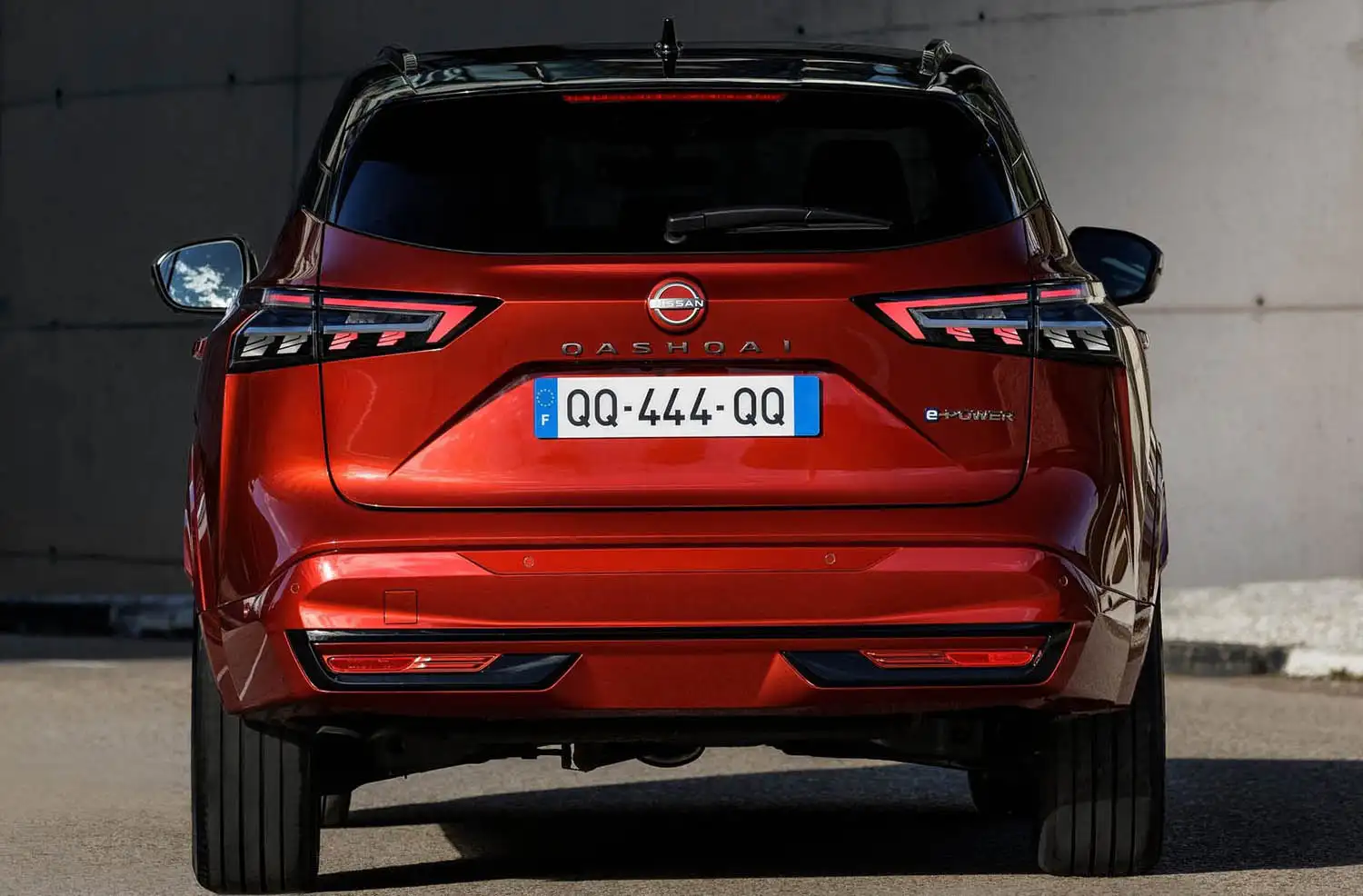
For peace of mind, the Nissan Connected Services update will surveil the Qashqai on the driver’s behalf. It can remind customers if they have forgotten to lock the car or close the windows if they remain open one minute after the engine has stopped. Customers can close the windows and lock the car from the smartphone app. It will also warn them if the car has been tampered with or towed. In case of suspected theft, it can be immobilized and using Nissan’s third-party supplier, law-enforcement authorities can be informed in order to recover it – even in foreign countries.
Equally, Qashqai customers with a data plan subscription can also use Amazon’s Alexa smart home system. Customers can talk to Amazon Alexa in their Qashqai. With Alexa, they can ask to play music, hear the news, check weather, control smart home devices, and more.
“The addition of Google Automotive Services to the Qashqai reflects Nissan’s spirit of innovation. Integrating this suite of digital technology will allow our customers to have the convenience that they enjoy from their smartphones, integrated into their cars,” said Guillaume Pelletreau, Region VP Electrification & Connectivity and new Revenues and Marketing & Sales Transformations, Nissan AMIEO (Africa, Middle East, India, Europe & Oceania) region.
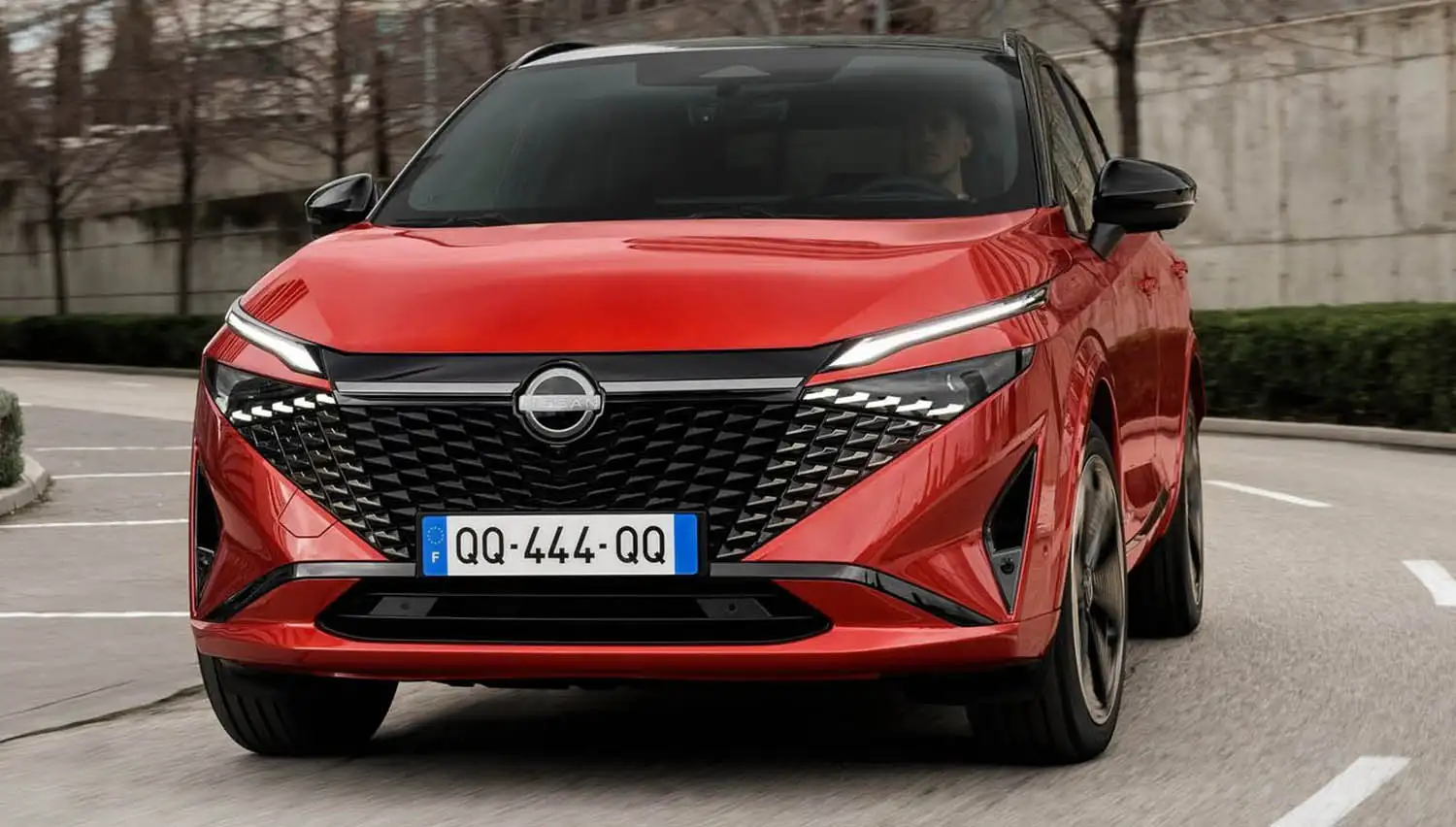
e-POWER: our unique and innovative powertrain
In keeping with the pioneering spirit that gave birth to the original Qashqai and which invented the crossover segment, e-POWER is the unique and innovative electrified powertrain that has proved so popular with customers since its launch in 2022.
In the world of engineering, the simplest ideas are often the best. And e-POWER perfectly reflects that principle. The petrol engine generates the electricity which is used to drive the wheels. This is a far simpler solution than the myriad traditional hybrids on-sale today.
The result of that simplicity is a drive experience which combines responsiveness and refinement with efficiency – with no compromise on driving pleasure. Thanks to e-POWER, customers no longer need to accept a mediocre driving experience as they do with traditional hybrids.
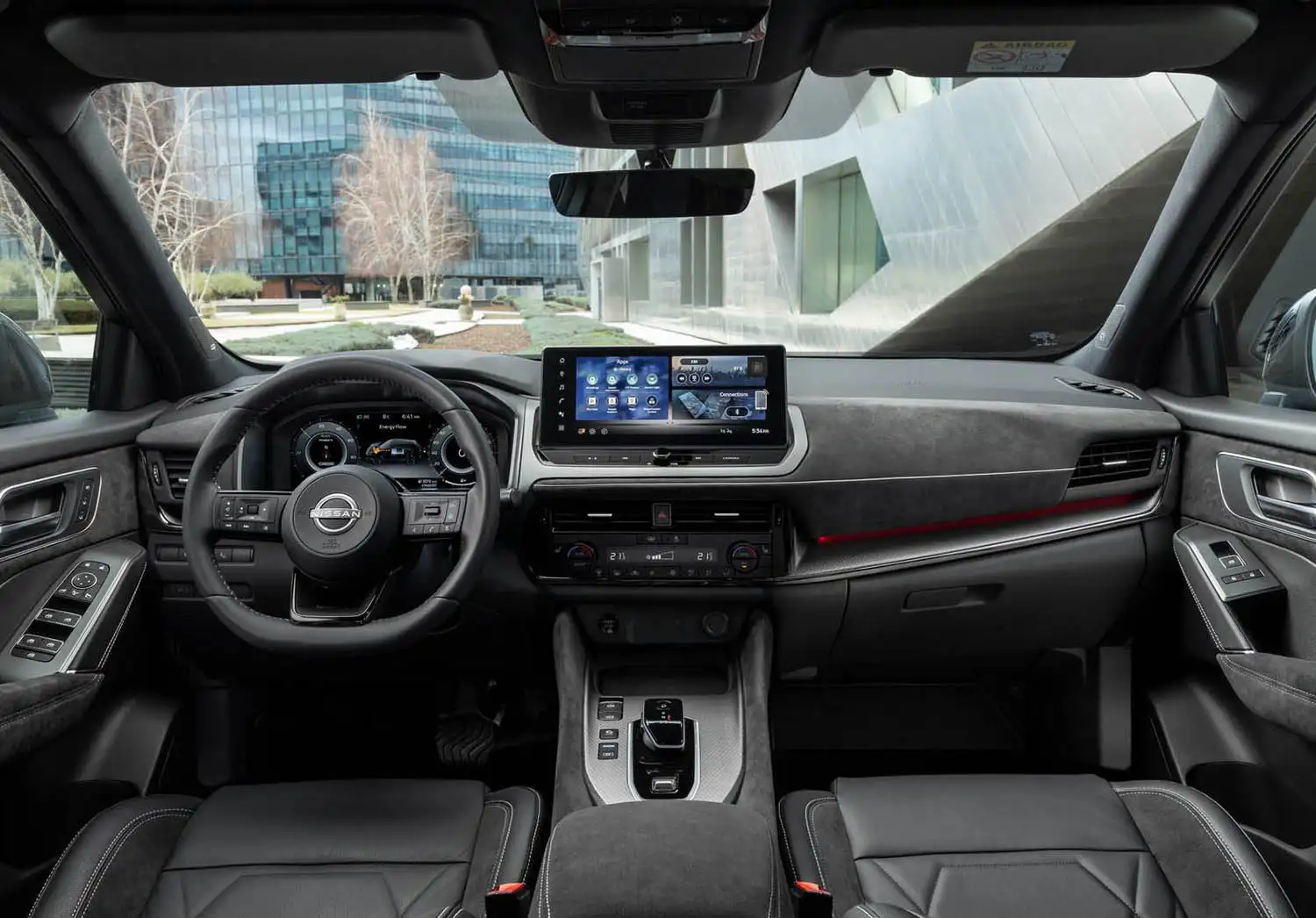
The key to e-POWER’s unique and innovative powertrain is that there is no gearbox. The wheels are only ever driven directly by the electric motor.
A pure electric motor direct drive to the wheels means instant, high torque and linear response. It represents an EV-drive sensation without the need to think of charging – a stepping-stone for customers who aren’t yet ready to make the switch to 100% EV.
The sole role of the advanced turbocharged 3-cylinder engine – with variable compression ratio technology – is to generate electricity, which is sent via the inverter to either the 140kW electric motor or the 1.8kwh battery (or both, according to the driving scenario). The engine works quietly in the background to provide the necessary charge to the battery and motor. It’s been programmed to provide the electricity in relation to vehicle speed to avoid the disconcerting disconnect between background sound and vehicle progress.
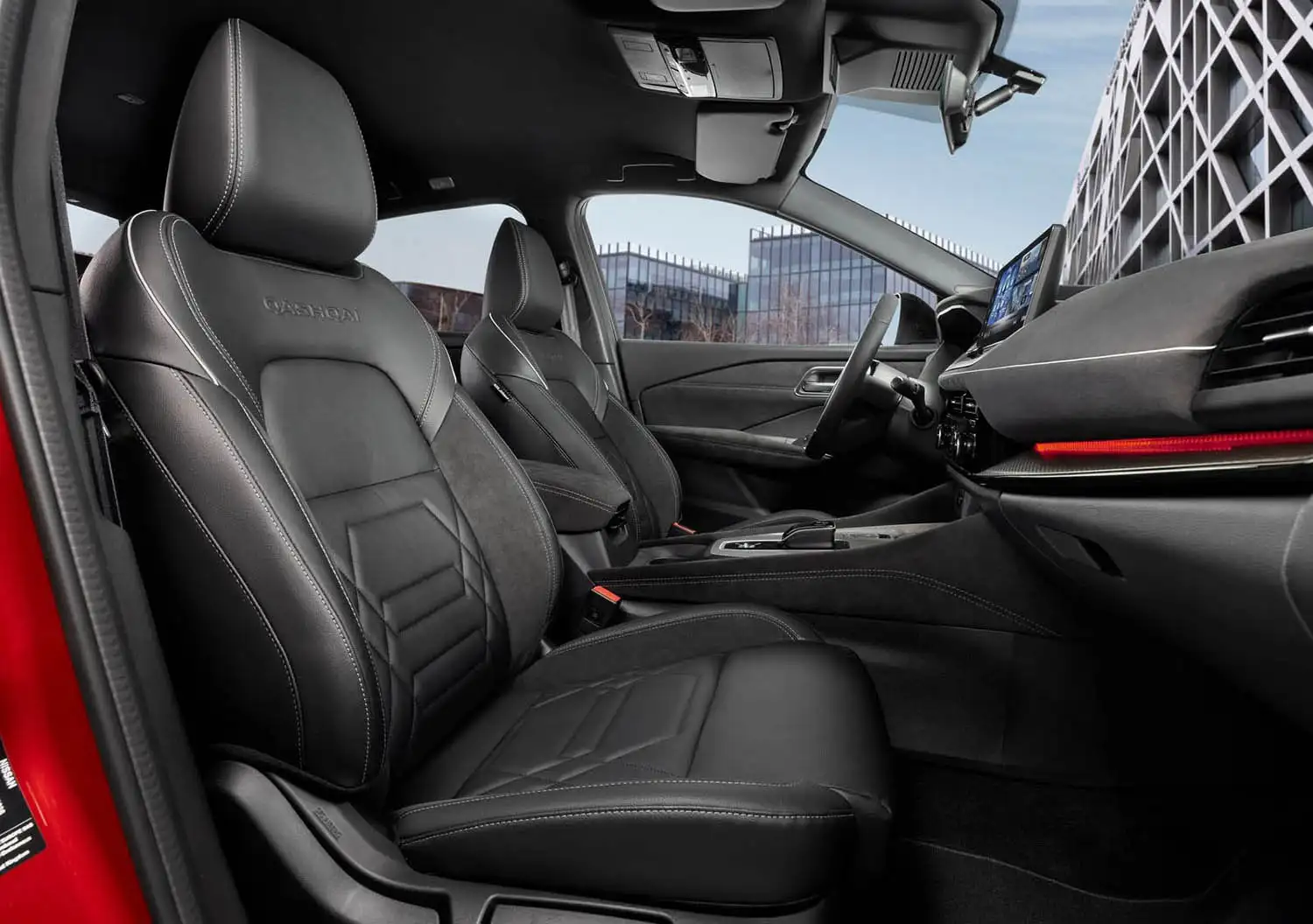
Like a pure electric vehicle, the e-POWER system can harness momentum during braking or coasting to send electricity back to the battery. Drivers can also select the B mode on the gear selector for higher levels of brake regeneration. And Nissan’s e-Pedal Step function allows drivers to drive using just the accelerator – where significant braking is achieved upon release of the gas pedal. After a few minutes, driving with e-Pedal Step activated becomes second nature, particularly in an urban environment. (The brake may still be required in some unforeseen circumstances. And e-Pedal Step will only brake the vehicle until it is at “creep” speed, like a traditional automatic gearbox. For a full stop, the brake will be needed).
Since its launch on both the Nissan Qashqai and X-Trail in September 2022, Nissan has sold over 100,000 e-POWER equipped vehicles in Europe – with customers loving the electric drive feeling.
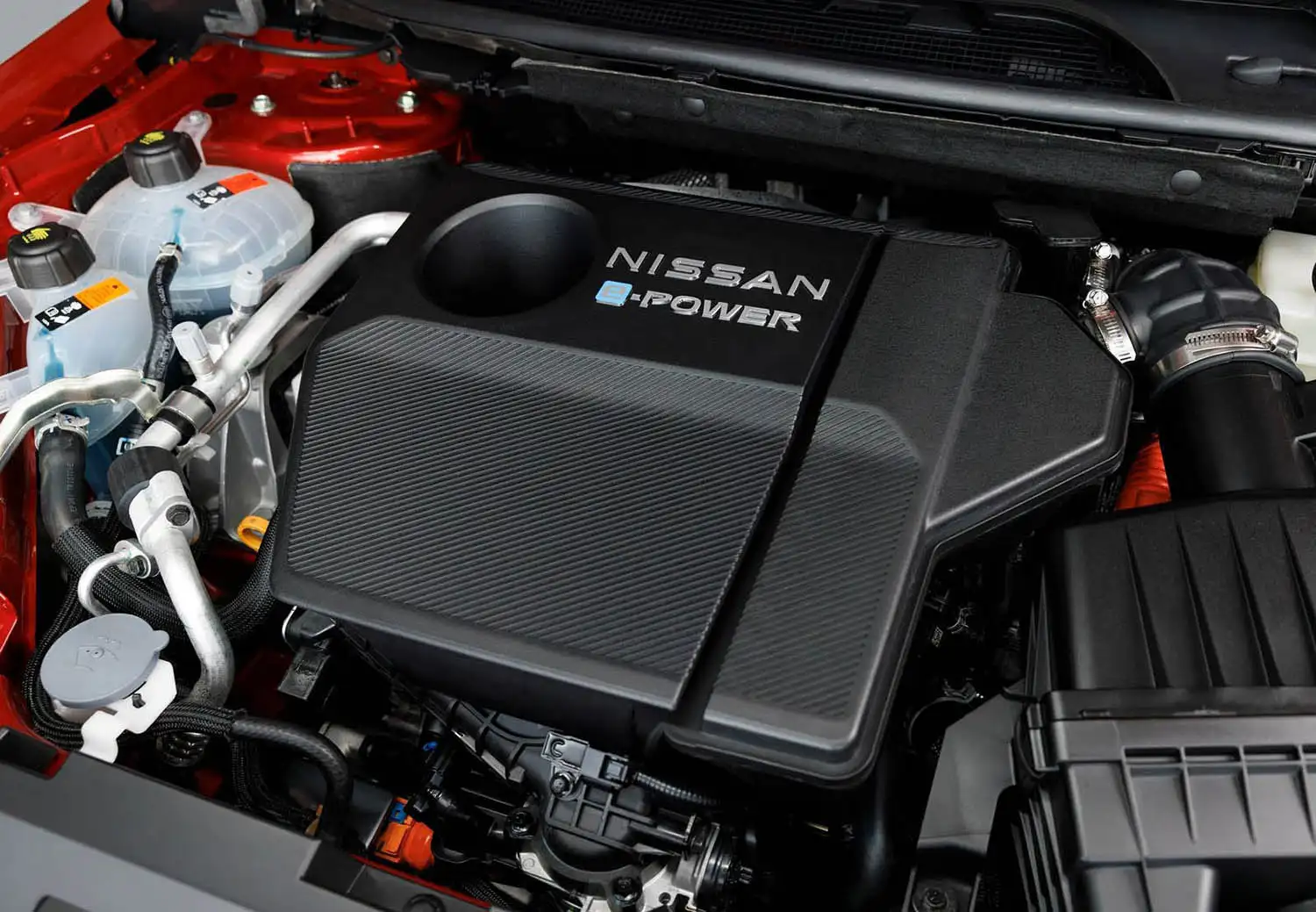
“The breadth of updates which have been introduced to Qashqai were conceived to elevate its eye-catching appeal with the creation of the new N-Design grade. And, across the range, there is also additional convenience, comfort and segment-leading digital integration thanks to the new Google features. Qashqai created a segment thanks to its unique combination of design appeal, convenience and user-friendly tech. These updates and our innovative e-POWER electrified powertrain will maintain Nissan’s position as the crossover segment creators and innovators,” said Arnaud Charpentier, Vice President, Product Strategy, Nissan AMIEO (Africa, Middle East, India, Europe & Oceania) region.
The updated Qashqai is now in production at Nissan Sunderland Plant, where more than 1.3 million units have been built since the original was launched in 2007.
Qashqai is now the most manufactured model at Sunderland Plant. Last summer the plant built its eleven millionth vehicle since production began in 1986.
